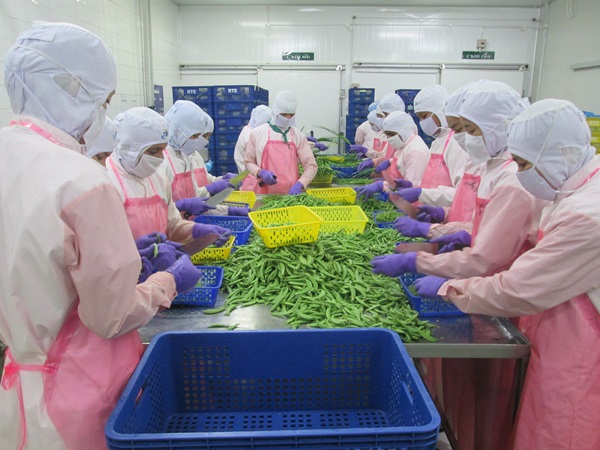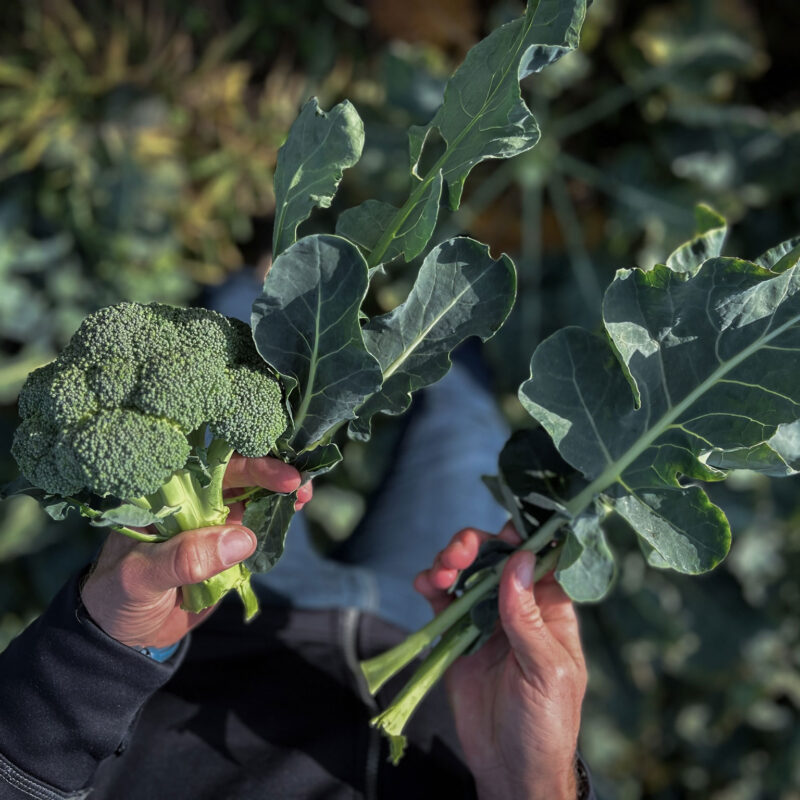Migrant workers in Thailand
Migrant workers in Thailand is a topic that engages Axfoundation due to the human rights risks the migrant workers are exposed to. Together with the food industry, Axfoundation formed The Nordic Initiative in 2017. The aim was to jointly raise the level of knowledge at supplier factories in Thailand so that trafficking, discrimination and other forms of abuse may be prevented and stopped. Through this initiative, nearly 2,500 employees and managers at 12 food-producing factories received rights training with the help of digital-learning tool Quizrr in 2016-2019. In addition, a remedy policy was developed, which serves to guide and support companies when alerted of human rights violations along the supply chain. In 2020, The Nordic Initiative expanded and changed its name to MOVE. Its goal is to develop similar training programs for migrant workers in several other markets.

More than three million men and women from Myanmar, Cambodia and Laos work in the food industry in Thailand, which is one of the world's largest food producers.
The Issue
Demand for food from Thailand is high and today fish and chicken, as well as ready-made food and canned food, are exported to Europe. This has led to an increased need for labor, which in turn has made the Thai food industry wholly dependent on migrant workers from Myanmar, Cambodia and Laos. But the working conditions for the migrants have been strongly criticized. International reports and news coverage have criticized Thailand’s fish, canned fruit and chicken industries, which has led to intense pressure from the European Union and buying companies. The Thai government has taken measures to improve conditions for migrant workers, but it is extremely difficult for employees to report mistreatment.
In spring 2016, the situation came to a head when 14 migrant workers from Myanmar accused their employers of exploitation. They had been working on a farm that supplied chicken to producers in the supply chain for many Nordic food companies. The purchasing companies had no direct business relationship with the chicken farm, nevertheless that was where the chicken originates.
“Defamation in Thailand is considered a criminal act and freedom of expression is restricted by a law that makes social media activity prosecutable. Unethical recruitment is common, where migrant workers are responsible for their own recruitment costs and end up in debt. This is why discrimination against migrants in society and at work is a major problem.” – Viveka Risberg, Axfoundation
Our Solution
Axfoundation gathered representatives of the Nordic food industry together in 2016 to discuss the potential of joint efforts. As a result, ten food companies formed an initiative called The Nordic Initiative in 2017. Axfood, Coop and ICA made up the steering group together with Axfoundation and tech company Quizrr, among others. The Nordic Initiative’s aim was to raise the level of knowledge at supplier factories in Thailand so that trafficking, discrimination and other forms of abuse could be prevented and stopped.

Migrant workers watch the films in the training tool Quizrr.
Quizrr was hired to hold digital training sessions focused on the ethical recruitment processes for the Thai market. Thanks to joint funding from the ten Nordic companies together with Vinnova trainings could be launched at a number of factories during the summer of 2018. The digital training tool was made in three languages, and aimed to assist migrant workers, local employees and managers at the factories.
The Nordic Initiative expanded in early 2020, including IOM Promise as new member and changed its name to MOVE, is now aiming to develop similar training for migrant workers in several other markets.
Results
The pilot phase in 2019 showed that employees at the factories appreciated the training and that the method made it easy to remember what they had learned. Attitudes between local Thai workers and migrant workers improved. Factory managers said that the training was time efficient and enabled them to be flexible when doing planning. They also stated that they had noticed a positive change of attitudes among employees and managers. After the pilot phase, evaluation was carried out and the training has continued at even more factories. In total, nine Nordic brands jointly ran the pilot in Thailand.
0
factories in Thailand were involved in the pilot phase 2018-2019
0
employees and managers at food-producing factories in Thailand received rights training
0
training sessions performed
Partners
What happened to the 14 migrant workers?
Since 2016, Thai poultry company Thammakaset Co. Ltd. has filed a total of 35 criminal and civil cases against 21 defendants, including human rights defenders, workers, and journalists, for alleged defamation of the company. The complaints stemmed from the defendants’ documentation, communication, and advocacy in connection with labor rights violations allegedly committed by Thammakaset. The workers risked up to one year in prison and fines if sentenced. In July 2018, the 14 workers were released and Thammakaset was ordered to pay 1.7 million Baht (USD 53,000) in compensation. However, Thammakaset Farm 2 continued with its allegations against a Thai academic and a journalist who reported on the case. Amnesty and Fortify Rights have filed protests against the chicken farm owner’s “abuse of freedom of expression”.
In regard to remedy, Axfoundation distributed funds for legal aid and to cover fines for the 14 migrants. Financial support came from a number of Nordic companies who chose to remain anonymous. With the help of Enact, Axfoundation, Axfood and Martin & Servera, developed a remedy policy which serves to guide and support the companies when alerted of human rights violations along the supply chain.
What is the responsibility of the purchasing companies?
The United Nations’ guiding principles for companies and human rights state that companies throughout the supply chain are responsible for not causing, contributing or being linked to human rights violations. Great emphasis is placed on preventing violations through risk management. Companies are required to “know and show” risks identified in the supply chain, and to manage them in such a way that violations are avoided. Despite the guidelines, it can be difficult for companies to make the right decision.



































































